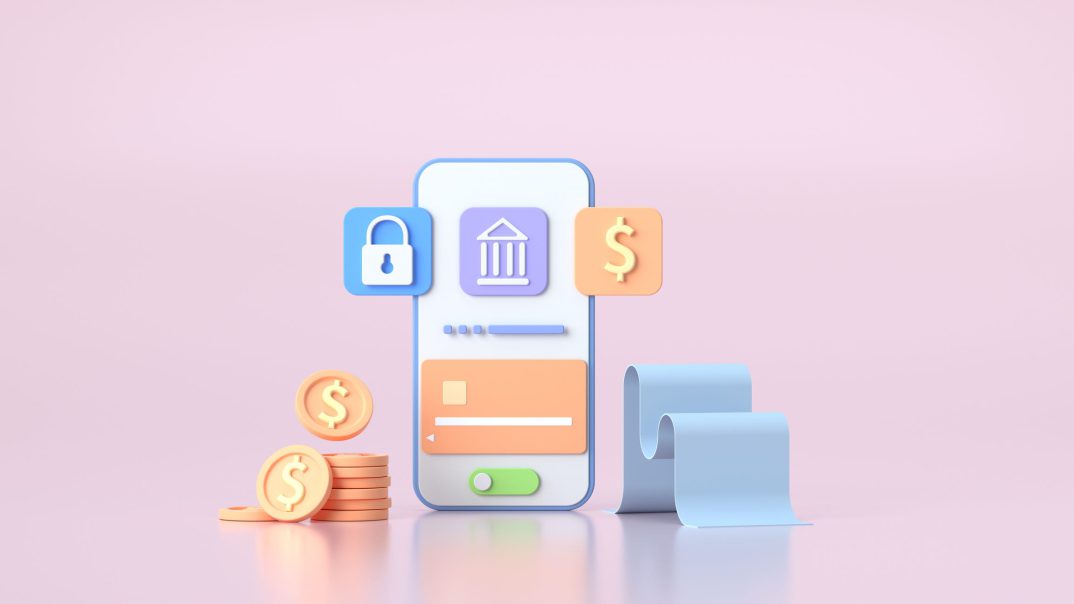Key takeaways
- The first step in choosing an online bank is verifying that your money is protected by FDIC or NCUA insurance.
- If you regularly deal with cash, pay close attention to a bank’s policy on ATM fee reimbursements and whether it accepts cash deposits.
- In addition to comparing fees and rates, research each bank’s app reviews and verify that the bank offers customer support options that will meet your needs.
Thanks to banking apps, payment apps and a shrinking need for physical dollars, you can do just about all of your banking from your computer or smartphone. If you can’t remember the last time you opened the door to a bank branch, you’re a good candidate for moving your money to an online-only bank.
The best online banks offer lower fees and higher rates than traditional banks, along with the convenience of managing your money from anywhere at any time. But which one should you choose? Read on to learn about the key considerations to keep in mind as you compare online banks.
How do you choose an online bank?
Think about your regular money management routine — how often you use cash and whether you want the assurance of 24/7 customer support, for example — to pinpoint what you’re looking for in an online bank. As you compare different options, make sure you’re thinking about these four key attributes to find a bank where you’ll feel comfortable:
1. Verify that your money will be insured
Make sure that the online bank or credit union advertises FDIC or NCUA coverage on its website, which guarantees up to $250,000 of insurance per depositor, per account category. So even if the institution fails (which is unlikely), you’ll receive all of your money back. If you have any doubts about whether your funds will be protected, use the FDIC’s database or the NCUA’s database to confirm.
2. Ask about ATM access and fee reimbursements
Many online banks and credit unions partner with national ATM networks so that you can access surcharge-free ATMs across the country. Some of the best online banks also allow you to make cash deposits, which can be vital if your job or side hustle pays you in cash. Additionally, see if the bank offers reimbursements for out-of-network ATM transactions if you wind up needing to use another bank’s machine.
3. Look at interest rates, fees and product offerings
Online banks are known for offering higher interest rates and lower fees, but some are better than others. Select online banks may only offer savings accounts or CDs, while others offer a complete product lineup that includes checking accounts, investments and other banking services.
4. See what other customers are saying
It’s always a good idea to take a look at reviews of bank mobile apps and browse through any feedback on the Better Business Bureau website and/or Trustpilot to get a sense of what customers are saying. Similarly, you can check out J.D. Power’s Customer Satisfaction results to see which online banks provide a top-notch customer experience.
The pros and cons of online banking
There are many benefits associated with online banking, including the ability to access your accounts and make transactions anytime. However, you should consider the trade-offs to make sure that banking in a digital-only environment is the right choice for you.
Pros
-
Easy access: You can do your banking anytime, anywhere via an online bank’s web platform or mobile app.
-
Lower fees: Online banks don’t have the high overhead of branches, and they typically pass on the savings from those lower operating costs with more consumer-friendly fee structures.
-
Higher rates: Online banks typically offer competitive interest rates that can yield a larger return on your balance.
-
Innovative tools: Some online banks offer sophisticated account features that allow you to create multiple savings goals and monitor your budget.
Cons
-
No human touch: If you like talking to a human in person, online banks aren’t your speed due to their lack of branches.
-
Wait time: Be mindful of potential delays for certain banking services such as transfers and deposits.
-
Cash challenges: Some online banks don’t accept cash deposits, which can be problematic if you’re regularly paid in cash instead of direct deposit.
-
Online risks: There’s an ever-present risk of scams, fraud and identity theft online. However, this also exists at traditional brick-and-mortar banks that provide online services. No matter where you keep your money, be mindful of how to steer clear of scammers and protect your identity.
While most online banks stand out when it comes to providing innovative digital banking tools, low fees and competitive rates, there are a few traditional big banks that offer competitive features. Capital One and Citibank, for example, combine the best features of online banking with the presence of physical branches.
Subscribe
Are online banks safe?
Yes — as long as the online bank has deposit insurance. Federally insured online banks, or credit unions, are insured by either the Federal Deposit Insurance Corporation or National Credit Union Administration, respectively, for up to $250,000 per person, per institution.
Neobanks, financial institutions that aren’t state-chartered but provide many of the same online banking services such as savings and checking accounts or loans, will often partner with an FDIC-insured bank to maintain your account, providing federal insurance against bank loss or failure. However, it’s not a guarantee, and it’s important to confirm this detail before opening an account. Some popular neobanks, such as Utopia, aren’t FDIC-insured. So, while it advertises the ability to open an account in the US banking system, the fine print spells out that it is “not a bank”, but instead a “technology services provider.”
To confirm whether a financial institution is federally insured, you can use the FDIC’s BankFind tool or the NCUA’s Credit Union Locator.In addition to deposit insurance, it’s important to think about how online banks and credit unions protect your information from identity theft and data breaches. Just like traditional brick-and-mortar banks, many online banks and credit unions deploy the latest advances in technology to protect your money and personal information. Standard security measures used by online banks include antivirus protection, firewalls, fraud monitoring and website encryption. Most banks describe how they protect your money on their website.
How do I open an online bank account?
To open an online bank account, you’ll need to provide some personal information, including your Social Security number, date of birth, address and contact details. You will likely need to provide a copy of your driver’s license or other government-issued ID.
Sometimes, you may need to upload, fax or email additional documents, such as a paycheck stub, bank statement or utility bill, to verify your identity. The full process of opening a bank account online can take anywhere from a few minutes to several days. How soon you can access your money will depend on which method you use to make your first deposit. The fastest way to transfer money into a new account is typically via a wire transfer from another bank account, although that will come with fees. You can opt to set up an ACH transfer from another bank account, but the money may take some additional time to show up in your account.
How to deposit money into an online bank account
While some online banks don’t have a minimum opening deposit amount, you’re going to eventually need to fund the account to take advantage of the interest potential. The options available to deposit money into your online bank account vary depending on the institution. These are the four most widely available options for your initial deposit.
- Transfer money from an externally linked bank account. If you have an account at another institution, you’ll need the account number and the routing number of your new account to set up the transfer. Some online banks only allow this method for your initial deposit.
- Establish a payroll direct deposit transfer from your employer. If your company pays you via direct deposit, reach out to your finance department or HR team to update your payment preferences so that your next paycheck lands in your new account.
- Use the mobile check deposit tool, or drop a check in the mail. Not all banks offer mobile deposit tools just yet, but they are becoming more common. It’s a simple process that involves snapping a photo of the front and back of the check and signing with an indication that it is solely for electronic deposit. Some online banks also accept physical checks in the mail.
- Deposit cash at an ATM if your online bank accepts this option. You’ll need to find an ATM that is part of the online bank’s network to make the cash deposit. Since it’s not the bank’s own ATM, be prepared to wait a few business days before all your funds become available in your account.
The bottom line
Online banks, credit unions and neobanks offer a variety of convenient services through mobile and online access. Unlike traditional banks, you won’t have access to in-person customer service so you’ll need to be comfortable managing all of your banking affairs in a digital environment. However, the benefits of 24/7 access to your money, coupled with potentially fewer fees and more competitive rates, may make online banks an ideal option for you.
Before opening an account, confirm that the financial institution you’re considering is federally insured by either the FDIC or NCUA, implements standard security protocols and offers the features you need — whether that’s an ATM network with enough surcharge-free ATMs in your area, check-writing access, phone customer service or something else.
Correction: An earlier version of this article was assisted by an AI engine, and it mischaracterized some aspects of online banking costs and features. Those points were all corrected. This version has been substantially updated by a staff writer.
Recommended Articles
Best Online Banks for June 2024
Best Online Banks for June 2024
Best Online Banks for Cash Deposits for July 2024
Best Online Banks for Cash Deposits for July 2024
Best Online Checking Accounts for July 2024
Best Online Checking Accounts for July 2024
Best High-Yield Savings Accounts for July 2024
Best High-Yield Savings Accounts for July 2024
Why Online Banks Can Offer Higher Interest Rates and What to Consider Before You Switch




